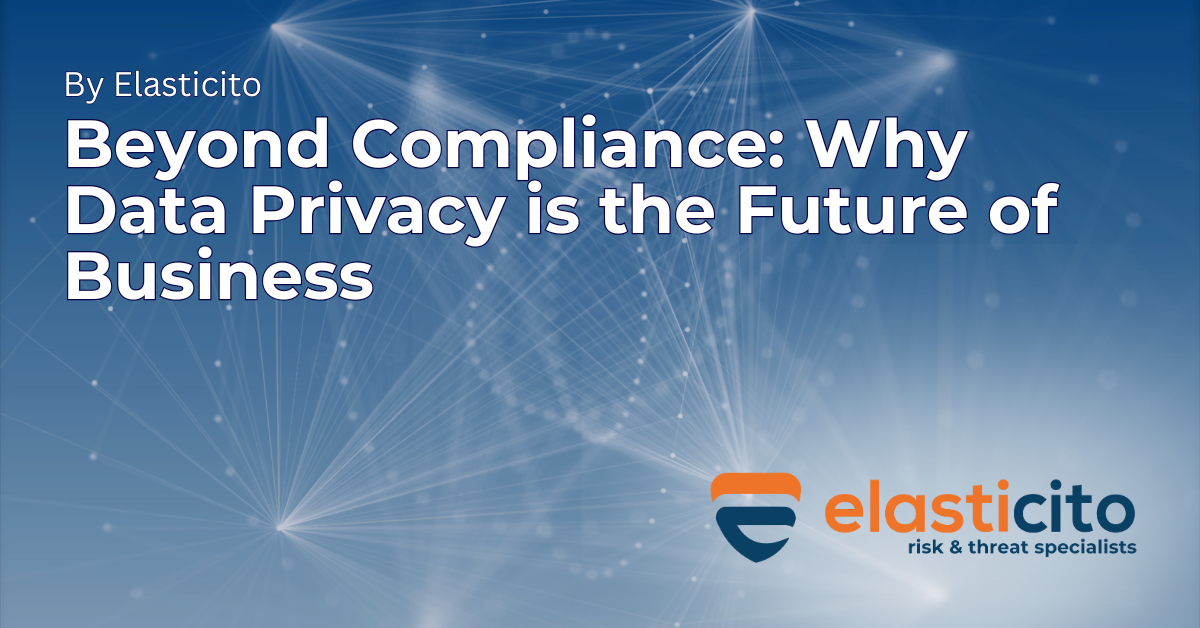Beyond Compliance: Why Data Privacy is the Future of Business

The digital landscape has fundamentally shifted. Data isn’t just a core asset; it’s the very lifeblood of a business. But with unprecedented data collection comes heightened scrutiny and a critical need for robust data privacy practices. Consumers, now more than ever, are aware of their digital footprint and are demanding transparency, control, and respect for their personal information. The companies that succeed in the coming years will be those that integrate data privacy into their core business strategy, moving beyond mere compliance to build a culture of trust.
A 2024 Gartner survey revealed that 85% of consumers would consider taking their business elsewhere if they felt their personal data was being mishandled. This isn’t just a legal obligation; it’s a competitive advantage. Building customer trust requires a commitment to Privacy by Design, where data protection is a foundational principle from the start.
The Modern Data Privacy Imperative
1. Conduct a comprehensive Data Privacy Assessment
Your first step must be a thorough assessment of your data ecosystem. In a world of global business and interconnected platforms, understanding the web of data privacy regulations is critical. Beyond the well-known GDPR in Europe and CCPA in California, a patchwork of new, evolving laws (like the DPA in South Africa or the PIPL in China) means a localised approach is no longer enough. Your assessment should map out:
- What personal data do you collect?
- Why and how is it collected?
- Where is it stored, and for how long?
- Who has access to it, both internally and externally?
2. Prioritise Third-Party and Supply Chain Security
The modern business is a network of third-party vendors, cloud services, and outsourced partners. This interconnectedness creates a significant point of vulnerability. A single breach in your supply chain can expose your customers’ data and devastate your brand. Today, a robust third-party risk management program is non-negotiable. To mitigate this risk, implement a rigorous vetting process that includes:
- Security Audits and Certifications: Demand proof of a partner’s security posture, such as SOC 2 or ISO 27001 certifications.
- Contractual Obligations: Ensure service-level agreements (SLAs) include clear, enforceable data privacy and security clauses.
- Continuous Monitoring: Use automated tools to monitor vendors for security vulnerabilities and public data breaches in real time.
Adopting a Privacy Framework and Building a Culture of Trust
3. Implement a Data Privacy Framework
A privacy framework provides a structured approach to managing data risk and building a culture of privacy. Instead of reacting to individual incidents, a framework helps you proactively embed privacy into every business process. The NIST Privacy Framework and ISO/IEC 27701 are excellent starting points. They help you:
- Identify and categorise privacy risks.
- Establish clear policies and procedures for data handling.
- Create a consistent approach to data protection across the organisation.
4. Enhance Employee Training and Awareness
Human error remains a leading cause of data breaches. In an age of remote and hybrid work, employees are often the first line of defense. Unfortunately, many organisations are still falling short on training. A basic annual training module is not enough. You must foster a culture where every employee understands their role in protecting data. This requires a multi-pronged approach:
- Ongoing Education: Use frequent, targeted training sessions that address current threats like phishing and social engineering.
- Simulated Exercises: Conduct regular phishing simulations and privacy drills to test employee readiness.
- Leadership Engagement: Encourage executives to champion data privacy, demonstrating its importance from the top down.
Conclusion
Ultimately, data privacy has transcended its status as a mere compliance issue to become a fundamental component of business success. Companies that treat personal data with the respect and security it deserves will not only meet regulatory requirements but will also build a foundation of customer trust that fosters loyalty and growth. A strategic, proactive approach—based on a comprehensive assessment, robust third-party security, and a privacy framework—is essential. This journey is not a one-time project but a continuous effort to embed a culture of privacy into your organisation’s DNA.
Don’t let data privacy remain a reactive burden. Partnering with the right experts can transform this challenge into a competitive advantage. Elasticito is equipped to help you navigate this complex landscape, providing the guidance and tools necessary to build a resilient, privacy-first organisation. Contact Elasticito today and take the definitive step toward securing your business’s future.
